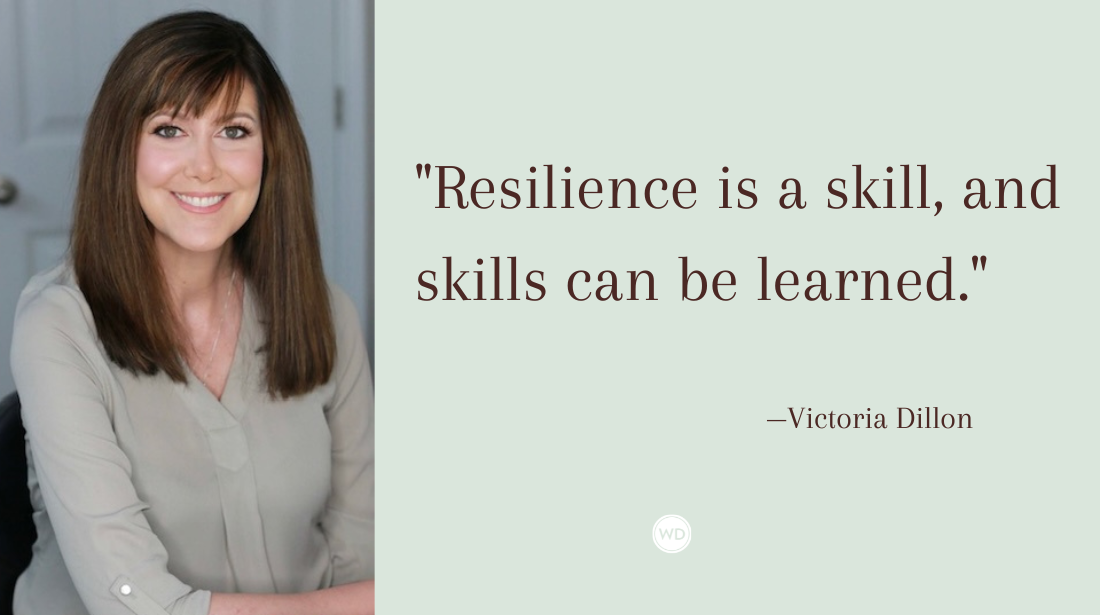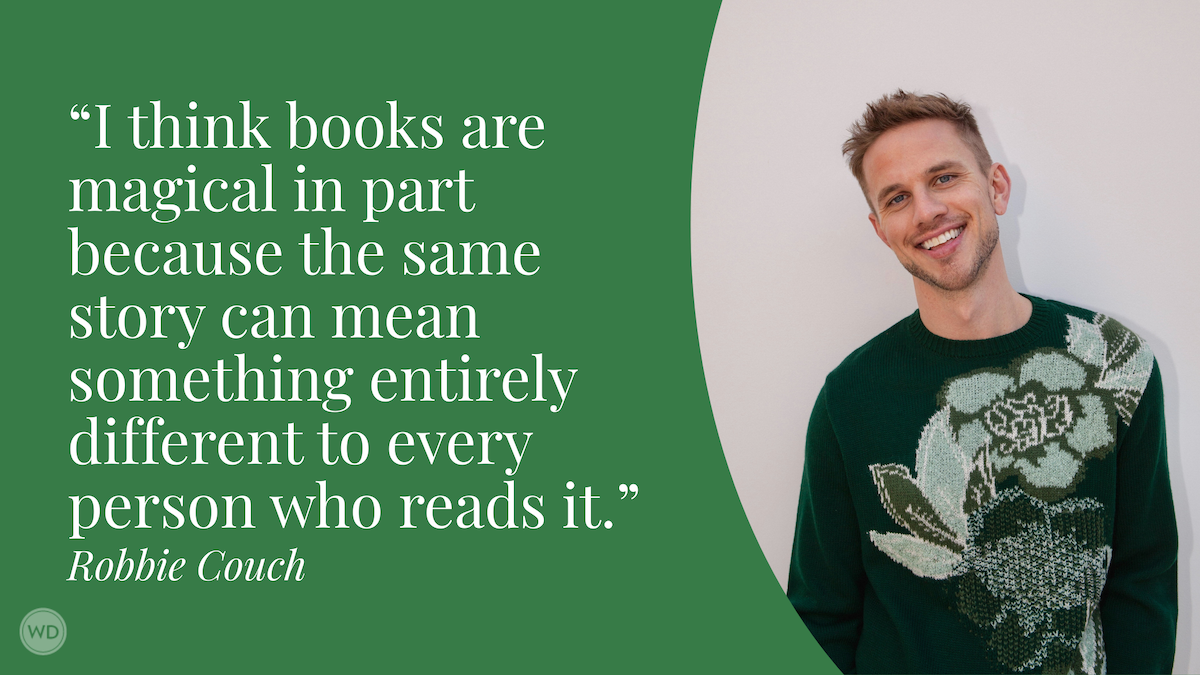Dyslexia Is a Writer’s Superpower (With Help)
Author PJ Manney shares how dyslexia, dysgraphia, and dyscalculia should not be viewed as impediments to becoming a writer. Rather, they should be viewed as writing superpowers, especially when paired with certain technologies.
When I was growing up, dyslexia, dysgraphia, and dyscalculia were seen as deficits, tragic disabilities that limited professions and possibilities, if they were diagnosed at all. I have all three: dyslexia, dysgraphia, and dyscalculia, as well as late-discovered ADHD. Regardless of being gifted and going to college at 16, every teacher's recommendation and psychometric test said that whatever I chose to be, I could never be a writer or anything to do with the writing profession.
Boy, were they wrong. It's not a deficit. It's a gift for storytellers, as long as one has tricks and technologies to make the act of writing easier.
Quick facts about dyslexia
1 out of 10 people are dyslexic/dysgraphic/dyscalculic, which I will generalize with the single word "dyslexic." No one is dyslexic in the same way. Some have other neurodiversities (ND) which can affect dyslexia, like giftedness, ADD/ADHD, autism, sensory sensitives, asynchronous development, and others, and all neurodiversity exists on a spectrum. Dyslexics have advantages many neurotypicals (NT) may not, including excellent verbal communication, sensitive auditory processing, creative problem-solving, and increased 3-D spatial perception.
Seventy-one percent of dyslexics are considered "above average communicators." We build stories in ways that work for us, but many appreciate. Hollywood is filled with dyslexics in every job description, including screenwriters. Many famous authors were dyslexic, including F. Scott Fitzgerald, Agatha Christie, WB Yeats, Gustave Flaubert, and Jules Verne. I can only imagine the hacks earlier dyslexic authors had to create to do what they did.
I didn't attempt to be a professional writer until assistive technologies paired with my natural storytelling abilities.
*****
Check out PJ Manney's latest novel (CON)science:
(Writer's Digest uses affiliate links.)
*****
Technologies help dyslexic writers
There are many technologies available today to help dyslexic writers.
Touch typing: It's necessary for dysgraphia, since writing longhand can be agony, and can help dyslexics get their ideas down as fast as they think them. Touch typing can be complicated by body dyslexia when one's left and right hands get confused. Practice straightened out and sped up my touch typing.
Word processing: Non-linear and editable creation changed writing for dyslexics forever. Cut-and-paste supports non-linear thought. Like many dyslexics with ADHD, my composition process leaps from characters to plot points, to descriptions, to whatever strikes my fancy. I call this "sedimentary writing," because hopping around means I build stories layer by layer. From MS Word to Scrivener (my preferred composition program), non-linear and visually structured programs help composition. Scrivener is especially useful for dyslexics with ADD/ADHD, because we tend to live "out of sight, out of mind." Scrivener's virtual binder system keeps everything in one visual plane. The outline in the binder can become my own story outline and is endlessly editable and moveable. Locating the research binder on the same visual space eliminates friction to research elsewhere. Friction means I'll forget to find the research. I'm also the Queen of Open Tabs in my browsers. I want it all in one place, but not all visible at once.
I can imagine you reading this list and hear you exclaim, "Comic Sans?" with surprise and derision. Since 1994, Comic Sans has been used by dyslexics and neurotypicals alike to make composition smoother. Beyond being easier to read for dyslexics, many NT writers do a first draft in Comic Sans because it tricks their brains to not take their work too seriously, implying whatever is written, it's not a final draft. I'm a big believer in vomit drafts, and hundreds of writers I know swear by first drafts in Comic Sans, so no more hate, okay? If I give a written speech or do a literary reading, I blow the font up to 14 or 16 in Comic Sans or Open Dyslexia and print it as a separate document. I no longer read aloud from my printed books if I can help it.
Spelling, grammar, and usage: Spellcheck and Grammarly are well known. Browser programs like www.prowritingaid.com help catch all that and usage, too, including homonyms, overused words (a big issue for dyslexics), and generates reports on cliches, diction, alliteration, structure, and more.
Digital dictionaries and thesauri: Most word processing programs contain these, but I find they're not complete. Larger programs buy limited, cheap tools and build them in. I still prefer https://www.merriam-webster.com/ and www.thesaurus.com as my go-to, browser-based reference tools.
Large monitor screens, zooming text, line spacing, and graphic sizing: Dyslexic eyes saccade unevenly and too frequently on dense word formatting. Making the words large and isolating them from others helps keep focus on sentences. Also, large screens take up the field of view, limiting visual distractions. I pair this with oversized reading glasses, so everything I see is at the same magnification on my screen.
Speech recognition software: Growing up, I had a hard time getting words down on a page, because while I was articulate, the translation from brain to hand was challenging. When I was small, my parents would write down what I said, and when I was older, I'd say it to them as my audience, then turn to the page to jot down my thoughts. Speech recognition software helps bridge that motor skill gap. The most popular product is Dragon Naturally Speaking.
Text-to-speech software: Products like Notevibes and NaturalReader translate text to audible speech, making reading and line-editing easier. Mac products and Google cloud also have text-to-speech built in.
Mind-mapping: Dyslexics don't see story structure or plot points like others. We're 3D oriented. I see story as an actual rollercoaster, occupying a three-dimensional space. Others see flow charts, trees, buildings, Legos, or another structural simulacrum. There are dozens of mind mapping programs available for computers, many of which export directly to Word or Scrivener.
Scanning devices: Smart pens, digital photographic scanners, flatbed scanners, can translate words on a printed page to either audible or digital word-processed text.
Your NT friends, family, and paid professionals: I rely on my family and friends to a greater extent compared to NT writers. Once my writing exceeds 20,000 words, I need help. I can't "see" things, can't remember what I did, even if I check a dozen times, and don't know if it works. I'm a lucky writer to have so many NT people who love me and are writers or critical readers. And I thank every professional developmental, line, and copy editor, and proofreader who has ever touched my work. I could never have done any of this without them. Don't be shy telling your publisher you need extra time or help to edit. They can build it into your delivery schedule.
You do you
Ultimately, because every dyslexic is different, you must think about your strengths. Are you an auditory learner? Listen to books to get the sense of rhythm and pacing. Kinesthetic? Retype stories to feel the word construction. Spatial? Think how you can build your story in space, not just time. And give yourself the gift of forgiveness. Being dyslexic is tiring. Our ND brains are working harder to adapt to a communication world contrary to our strengths than NTs can imagine. Writing can physically exhaust us, even if we feel emotionally energized by our work. But we are the born storytellers, and nothing should prevent us from writing. We just need a little help.
*****
If you love to write and have a story you want to tell, the only thing that can stand between you and the success you’re seeking isn’t craft, or a good agent, or enough Facebook friends and Twitter followers, but fear. Fear that you aren’t good enough, or fear the market is too crowded, or fear no one wants to hear from you. Fortunately, you can’t write while being in the flow and be afraid simultaneously. The question is whether you will write fearlessly.
PJ Manney is the author of the Phoenix Horizon trilogy: (CON)science, (ID)entity, and the Philip K. Dick Award nominee (R)evolution. A devotedly positive futurist, she was chairperson of the board of directors of Humanity+, an international nonprofit organization that advocates the ethical use of technology to expand human capabilities. Manney has also been active in communications, public relations, and film production. To date, she has written numerous scripts for television pilots and has also worked on shows such as Hercules: The Legendary Journeys and Xena: Warrior Princess. She has lived as far afield as New York and New Zealand and loves delving into the cultural landscape of wherever she finds herself. When she’s not writing, she continues to expound on her perspective of a technology-driven posthumanity while encouraging hopeful visions of the future. She lives with her husband of 31 years and their two children. For more information, visit www.pjmanney.com.









